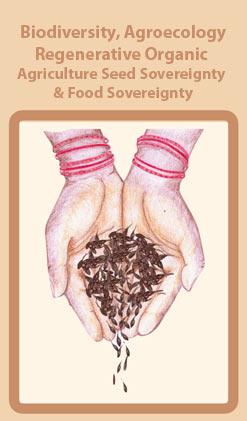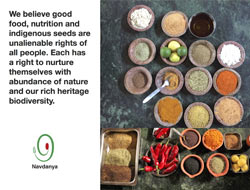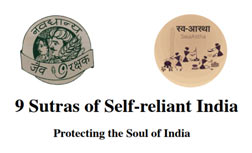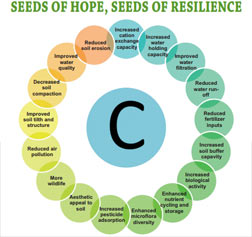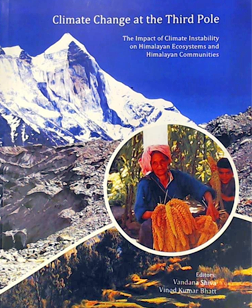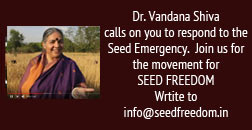Yesterday, 12th of August 2010 Research Foundation for Science Technology and Ecology and the Save Niyamgiri Movement joined hands to hold a policy dialogue “Niyamgiri: a test case for the defense of our forests and tribals”, at the Constitution Club in New Delhi to support the struggle of Niyamgiri, its forests and its people against Vedanta’s plans to mine its sacred mountain.
While on their way to the conference to narrate the atrocities witnessed in Niyamgiri by the hands of Vedanta, two of the Dongria Kondh leaders Lado Sikaka and Sana Sikaka were beaten and abducted by police officers in plain clothes, and only released after the intervention of Kalahandi MP
The two leaders were traveling to Delhi along with members of their community who were also to attend the policy dialogue. The following Dongria Kondh representatives were also supposed to attend, but as phones and car keys had been confiscated by the abductors, they were forced back to send the alarm to the kin.
| Men: | Women: |
| Kalia Sikaka | Rinja Sikaka |
| Drinju Sikaka | Sinde Sikaka |
| Sima Sikaka | Pandra Kadraka |
| Sundri Krusiki | |
| Minjadi Sikaka |
This incident reinforces the message that Vedanta’s rule of terror in Niyamgiri must be put to an end now, a message that all eminent speakers at the conference laid out clearly and unequivocally. “Niyamgiri stands as a test case” says Dr Shiva, for “If we fail in Niyamgiri, we won’t be able to protect the rights of people and nature anywhere else”.
The policy dialogue’s two objectives were in fact putting forward a comprehensive strategy to support the Niyamgiri struggle, while also more broadly deepening thedemocratic processes of the country to ensure its laws are upheld. Kalahandi MP Bakt Charan Das reiterates that laws on paper are not translating into rights in practice, as despite the FRA and PESA the individual and community rights of tribals in Niyamgiri are not b eing recognized or respected. B.D. Sharma, one of the architects of PESA, validates this point by saying that the provisions existing in the legal constitutional framework are not followed. For example the Gram Sabha, he goes on, is competent to manage its affairs and resources according to traditions and customs but the issue arises as the “top leadership doesn’t allow for people to be supreme”.
From a legal standpoint, Pinky Anand - Senior Advocate (SC) - and Sanjay Uphadyay –one of the framers of the Act - stress in fact that the issue is not one of absence of laws, but of lack of implementation, a point that was reiterated by most speakers. In reality, as T.K. Oommen, B.D. Sharma and Vandana Shiva remind us, the rights the tribal and forest dwelling communities are fighting for are rights to the Earth and its produce; they derive from Mother Earth and hence they are natural rights; they shouldn’t depend on an Act in the first place. Still, Sanjay Uphadyay reminds us how the rights are “already vested” and it is a duty of the State to respect them.
Much of the problem, the speakers conveyed, is that neither the Government, nor the urban public deeply understand the relationship that bonds the tribal and forest communities to their land and the environment. These communities have informally implemented the law of nature for centuries; as opposed to the law of loot, of greed, and corporate terror that is in place today.
Usha Ramanathan makes an important point by stressing that in cases like Niyamgiri, the Government itself is acting in violation of the Constitution and the law; we members of civil society should not question how the Government is using its powers; we should, practicing democracy, assert that it doesn’t have such powers in the first place! “The State” she says “has Constitutional obligations and does not have absolute powers”.
She goes on to say that much of the problem lies in our understanding of development and in the imposition of our urban paradigm to communities with a unique lifestyle. Eminent sociologist T.K. Oommen follows on this stating that while some displacement is perhaps inevitable, it is paramount to minimize it, and adequately compensate the displaced, after receiving their informed consent. Neither holds true in the case of Niyamgiri, where, he says, we are simultaneously witnessing an ecocide, aquacide, culturecide eventually leading to silent genocide due to displacement.
Unfortunately though, the approach followed by the Centre in forest and tribal areas has been one of “control” or “develop”, says Uphadyay. Questions of good governance or empowerment were never raised.
Rajya Sabha MP Mani Shankar Aiyas said: ‘The tribes need to feel empowered and free which is only possible when the centre involves them in the process of development.’ All the speakers agreed that the approach to be followed should be one of community empowerment: this stresses on the paramount essence of both the notion of common management of resources, and on the fact that these communities know what they want.
The Dongria Kondh through the voice of Lingraj reiterate that they are well aware of what they want: they do want development, but a sustainable one, that respects their traditions and customs. People have the right to refuse our urban industrial paradigm of development; if the process is leading to immiserization of locals, it can’t be called development, says Ramanathan.
Congress general secretary Digvijay Singh said tribals and other forest communities should be made stakeholders of their own development, and also part of the market economy the country has embraced. "The way forward in Niyamgiri” he said “is to make the forest dwellers owners of their own produce. The benefit of any capital investment is their inherent right."
Finally, all speakers agreed that in the immediate future, the efforts should concentrate on creating a comprehensive legal framework that addresses all issues thoroughly, in the place on the individual Acts currently in place; there is also need for a review of existing legislation to do away with all loopholes and inconsistencies that allow Vedanta and companies alike to carry on with their national loot.
In the words of Bakt Charan Das “We have to choose what is more important, the corporate leaders or millions of people in the countryside.
We must use mass agitation. We can assemble. We can go on hunger strike in Gandhiji’s way. This is how community rights must be brought to the country. We can decide. With this I conclude.”


